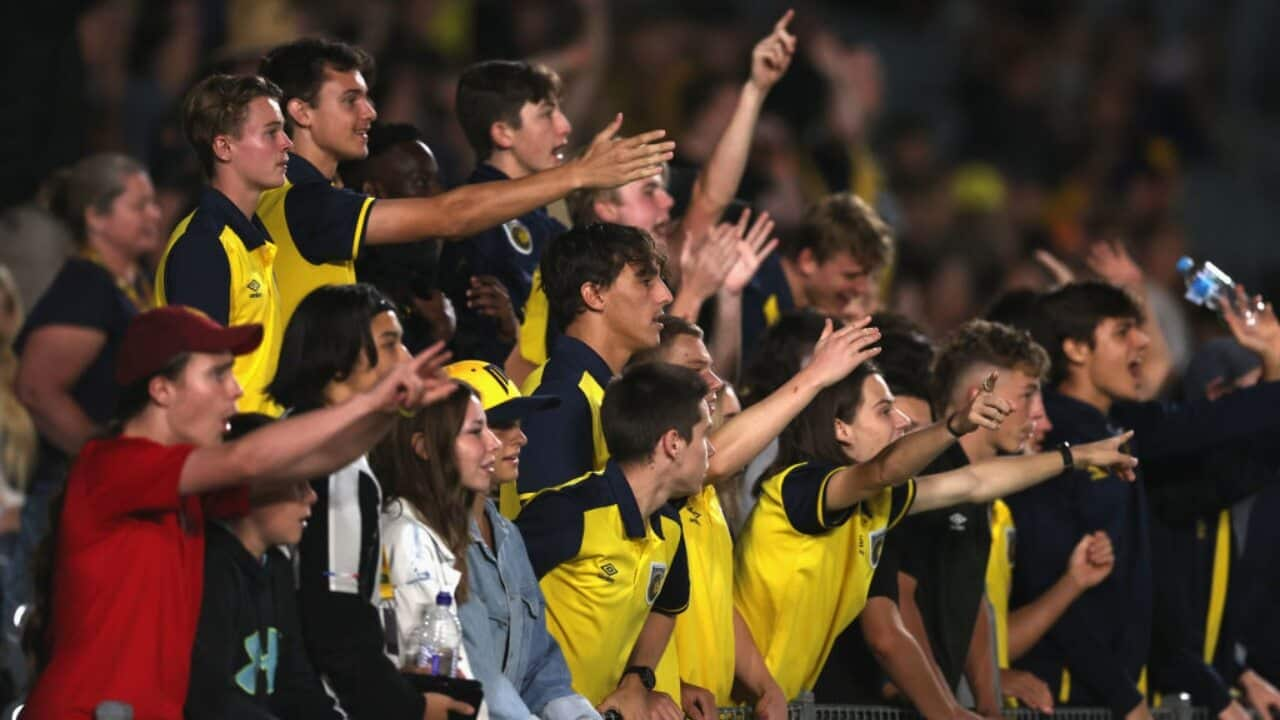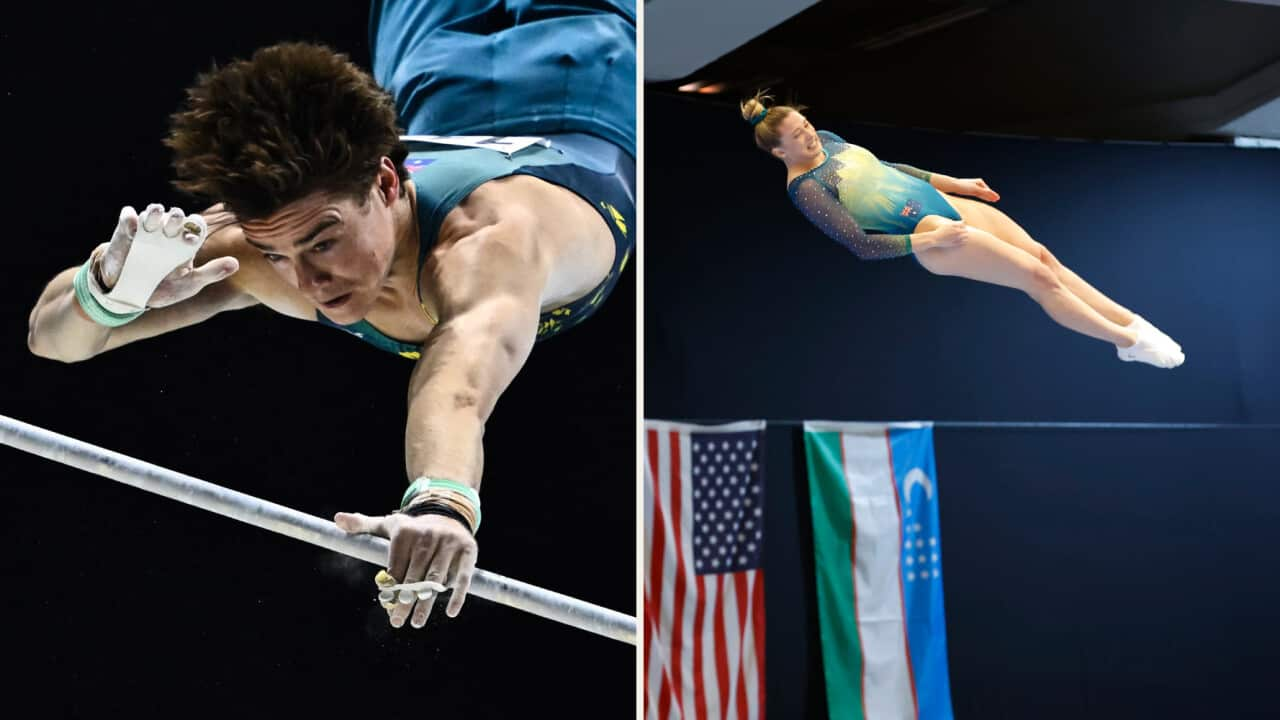The Central Coast Mariners are losers. They’re not losers on the field in 2020-21, of course.
The club’s transformation from easy-beat wooden spooners to league leaders is one of the narratives that has made the current A-League campaign one of its most entertaining ever.
This season, the Mariners are ‘losers’ in the sense that they’re underdogs; the designated group of underfunded and unappreciated talent that defies expectations to come good.
They're an A-League version of Rocky Balboa, the Mighty Ducks, or 2002 Oakland A’s.
Importantly for Mariners fans that recoiled in horror to a report from The Sydney Morning Herald that Manchester United were interested in buying the club, re-branding them and moving them to North Sydney, this also makes them the right kind of losers - as the condemnation of the plans from the wider footballing community quickly showed.
This couldn’t be allowed to happen to a club going through an on-field renaissance, was the cry from the zeitgeist.
The lovable and community-minded spirit of the Mariners, it was said, shouldn’t be lost to a rebranding exercise by an entity that is more corporation than football club these days.
Finally experiencing a moment in the sun after years in the wilderness, loyal fans on the coast shouldn’t be robbed of their team to give a bloated Sydney market its fourth national representative.
In this case, the Mariners being losers meant that they were, in fact, winners.
And with reports from numerous outlets quickly emerging to cast doubt on the proposed Red Devil takeover, CEO Shaun Mielekamp playing down the story and the SMH subsequently reporting a deal wasn’t imminent, it appears as though fans of the club may be able to breathe a sigh of relief.
Until the next time at least.
For at its very core, winners and losers, or more accurately picking them, is what the A-League is all about - a reality that often comes into direct conflict with its desire to foster community spirit, authenticity and connection with Australian football fans.
The addition of Western United and Macarthur FC to the competition in the latest round of expansion, for example, was an exercise in major-market, metrics-driven winner picking, as was the partnership between the league and Fox Sports over a marquee fund that deemed some international signings worthy of extra support.
Keisuke Honda was a winner in that scenario but then-Melbourne Victory linked Alessandro Diamanti, perhaps infamously in hindsight, wasn’t.
15 years ago, fans in Gosford were winners when they were one of the eight locations deemed worthy of receiving representation in the newly launched Australian top-flight.
Those in Wollongong, Tasmania, and Canberra were amongst the losers, as were fans of existing clubs such as Brisbane Strikers, Marconi, and South Melbourne.
And while some of those locations and clubs may end up winners in future rounds of expansion, others will remain on the outside looking in: some markets, fans and clubs deemed more worthy of inclusion in the A-League than others by factors far removed from sporting merit.
This is simply how the A-League works.
It’s a strategy that has allowed the competition to become the most professional, sustainable and covered domestic league in Australian football history.
Though no doubt driven by a significant level of self-interest - turkeys don’t vote for Christmas - many insist that it’s the only way that the game, in the long term, can maintain a high-standard, fully professional domestic league that can support the generation of future Socceroos and maintain football’s place in the zeitgeist.
Although the ongoing struggles it is experiencing with its finances, public interest and player development would suggest some reforms are needed, four straight FIFA World Cup qualifications for the Socceroos and an Asian Cup certainly add credence to their argument.
It’s also a model that makes the league an attractive proposition for clubs such as Manchester United.
The A-League is relatively cheap to invest in and situated in a country with a strong and well-regulated economy. For European clubs, it simultaneously offers representation in Asia and a home base with fewer cultural nuances that have to be navigated.
Crucially, the lack of promotion and relegation and the willingness of club owners that control the league to welcome new investors also means that there is very little risk to their investment losing their top-tier status.
Such a model means that it’s almost inevitable that talk of relocation and re-branding will be a part of Australian football’s conversation going forward.
Already, the SMH has reported that a Gold Coast consortium is also interested in buying the Mariners’ license in order to re-launch Gold Coast United as a national-league entity.
With the A-League operating separately from the rest of the Australian footballing ecosystem, there is simply no scope for Manchester United to replicate Red Bull's purchase of fifth-tier side SSV Markranstadt to re-brand them as RB Leipzig and turn them into national powers. Nor is there scope for Gold Coast to earn promotion from their current NPL Queensland stomping grounds.
If potential new investors wanting to leverage the A-League for their own means want representation in a certain market, they presently have just two options: win an expansion licence or relocate an existing team.
And with expansion likely to pause once the competition reaches 14 clubs and administrators unlikely to expose themselves to the ire that would come with approving more teams in existing markets, that means that the only route into the top-flight in a buyer’s preferred location will be purchasing an existing competitor and moving them.
If the price is right and the benefits to the league as a collective are sufficiently high, it means that whichever club are the target of a bid - as well as the fans and community that support them - will find themselves with little means to resist very quickly.
For in the A-League there will always be winners and losers - on and off the field.










